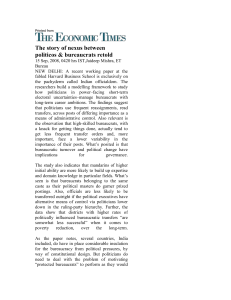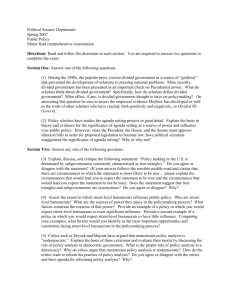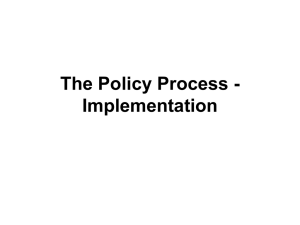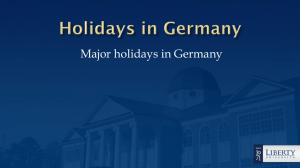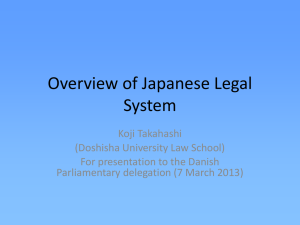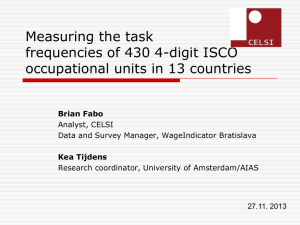Peter van Lidth de Jeude Pennsylvania State University My study
advertisement
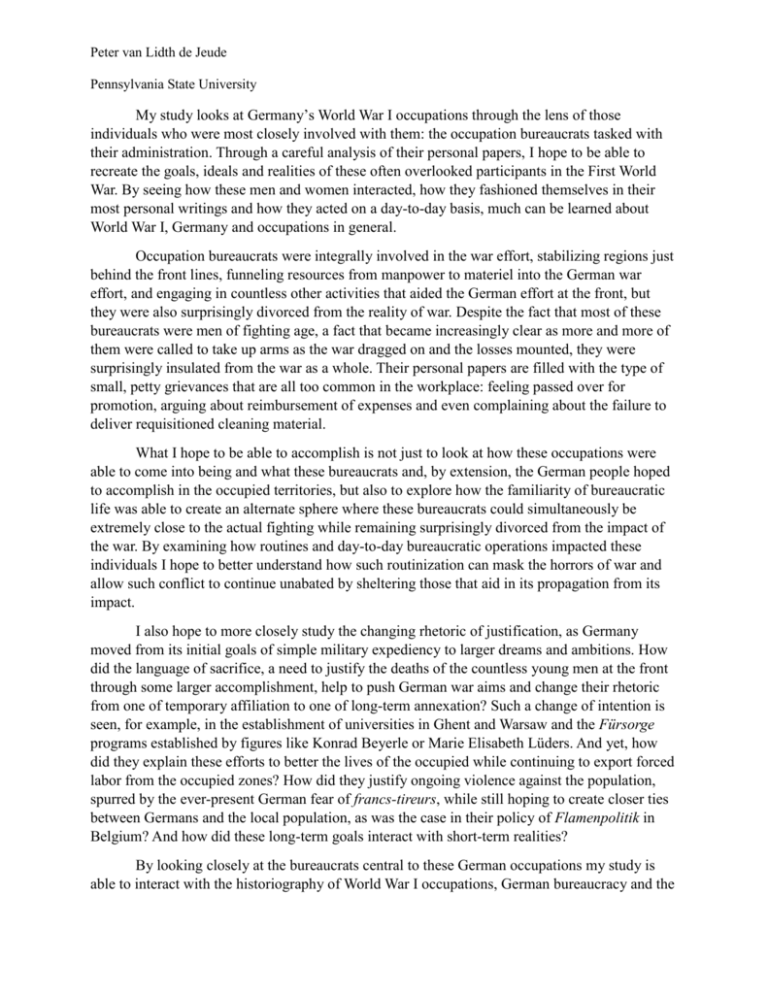
Peter van Lidth de Jeude Pennsylvania State University My study looks at Germany’s World War I occupations through the lens of those individuals who were most closely involved with them: the occupation bureaucrats tasked with their administration. Through a careful analysis of their personal papers, I hope to be able to recreate the goals, ideals and realities of these often overlooked participants in the First World War. By seeing how these men and women interacted, how they fashioned themselves in their most personal writings and how they acted on a day-to-day basis, much can be learned about World War I, Germany and occupations in general. Occupation bureaucrats were integrally involved in the war effort, stabilizing regions just behind the front lines, funneling resources from manpower to materiel into the German war effort, and engaging in countless other activities that aided the German effort at the front, but they were also surprisingly divorced from the reality of war. Despite the fact that most of these bureaucrats were men of fighting age, a fact that became increasingly clear as more and more of them were called to take up arms as the war dragged on and the losses mounted, they were surprisingly insulated from the war as a whole. Their personal papers are filled with the type of small, petty grievances that are all too common in the workplace: feeling passed over for promotion, arguing about reimbursement of expenses and even complaining about the failure to deliver requisitioned cleaning material. What I hope to be able to accomplish is not just to look at how these occupations were able to come into being and what these bureaucrats and, by extension, the German people hoped to accomplish in the occupied territories, but also to explore how the familiarity of bureaucratic life was able to create an alternate sphere where these bureaucrats could simultaneously be extremely close to the actual fighting while remaining surprisingly divorced from the impact of the war. By examining how routines and day-to-day bureaucratic operations impacted these individuals I hope to better understand how such routinization can mask the horrors of war and allow such conflict to continue unabated by sheltering those that aid in its propagation from its impact. I also hope to more closely study the changing rhetoric of justification, as Germany moved from its initial goals of simple military expediency to larger dreams and ambitions. How did the language of sacrifice, a need to justify the deaths of the countless young men at the front through some larger accomplishment, help to push German war aims and change their rhetoric from one of temporary affiliation to one of long-term annexation? Such a change of intention is seen, for example, in the establishment of universities in Ghent and Warsaw and the Fürsorge programs established by figures like Konrad Beyerle or Marie Elisabeth Lüders. And yet, how did they explain these efforts to better the lives of the occupied while continuing to export forced labor from the occupied zones? How did they justify ongoing violence against the population, spurred by the ever-present German fear of francs-tireurs, while still hoping to create closer ties between Germans and the local population, as was the case in their policy of Flamenpolitik in Belgium? And how did these long-term goals interact with short-term realities? By looking closely at the bureaucrats central to these German occupations my study is able to interact with the historiography of World War I occupations, German bureaucracy and the new field of occupation studies in new and interesting ways. I also hope to fill a vital gap in a field that is experiencing new interest and witnessing a flourishing of scholarship, thanks to the continuing interest in occupations and the renewed interest in World War I as a result of the ongoing centennial of that conflict. I would like to thank le Conseil général de la Somme, La Fondation Gerda Henkel and le Centre international de recherche de l’Historial de la Grande Guerre for their generous support in this endeavor. 2

